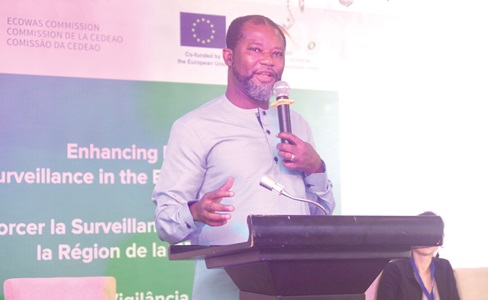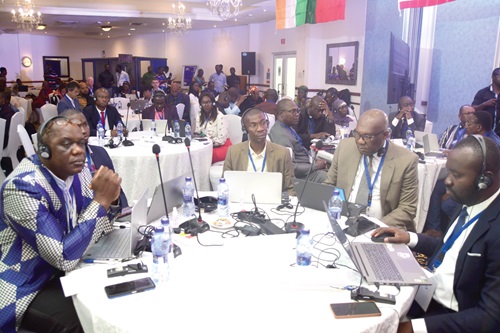
ECOWAS develops digital public health surveillance strategy
Agencies responsible for public health surveillance and disease outbreak management in the West African sub region are working on digitalising and linking their systems to build a robust health system for combating public health threats.
A digitalised regional system will facilitate the monitoring and response to public health threats like Ebola, Lassa fever, COVID-19 and other emerging threats efficiently and effectively.It would also facilitate early warning of diseases.
Workshop
In line with this, the ECOWAS Regional Centre for Surveillance and Disease Control (RCSDC), with support from the European Union, has held a three-day regional surveillance digitalisation workshop in Accra (Nov. 15).
It was to develop and implement a comprehensive digital surveillance strategy that addressed technical, procedural, and legal issues for secured data transmission among the ECOWAS member states in their fight against public health threats.
Complex system
The Minister of Health, Kwaku Agyeman-Manu, in a speech read on his behalf by the Director in charge of Allied Health at the Ministry, Dr Ignatius A. N. Awinibuno, said the world was becoming increasingly interconnected yet the challenges in public health surveillance and disease outbreak management in the sub region remained daunting.
Mr Agyeman-Manu said the COVID-19 pandemic underscored the critical need for robust health systems and amplified the call for innovation in the monitoring and response to public health threats.

With each ECOWAS member state facing unique challenges and considerations, he admitted that the path to a unified digital surveillance system would be complex.
So far, he said, two digital systems namely SORMAS and DHIS had emerged as front runners of which SORMAS had been implemented in Ghana and Nigeria, with Côte d'Ivoire piloting it as part of effort to harness technology for the greater good of the sub region.
He said the establishment of RCSDC under the West African Health Organisation (WAHO), represented the collective resolve of ECOWAS member states to strengthen their defences against public health threats.
For data governance and protection, he said the WAHO was collaborating with health information professionals across ECOWAS to develop a health data governance and protection policy that would ensure the confidentiality and integrity of the data they collected, shared, and utilised.
EU support
The Director-General of the WAHO, Dr Melchior Aissi, in a statement read on his behalf by the Executive Director of RCSDC, Dr Lokossov Virgil, said a digitalised surveillance system would transform the way the various countries monitor disease patterns, respond to health emergencies and protected its populations from emerging threats.
The RCSDC, he said, had a mandate to harness technologies to support ECOWAS member states in outbreak preparedness and response coordination.
He urged the various countries to work hard to navigate the complexities of integrating the diverse health information systems, ensure interoperability of digital platforms, and build the capacity of health workforce to utilise such tools effectively.
Also, he said it would be important to confront the ethical considerations of digital surveillance and balance the need for data with the right to privacy.
“As daunting as it may be, the opportunities are greater.
We have the chance to build a regional surveillance system that leverages the power of data to predict and prevent outbreaks before they occur,” he said.
The team leader for Macro-Economic and Trade sections at the EU Delegation in Ghana, Timothy Dolan, said the union had played a crucial role in strengthening the health systems within the ECOWAS Region since 2019.
The contributions of the EU, he said, were crucial in advancing public health and promoting swift data sharing across the region as a key aspect of emergency response.
“The EU's collaboration with WAHO is to ensure the efficacy and effectiveness of public health efforts of the region,” he said.
To ensure data protection, he said the EU was working with ECOWAS member states to develop comprehensive policies that guaranteed the security and integrity of data.
